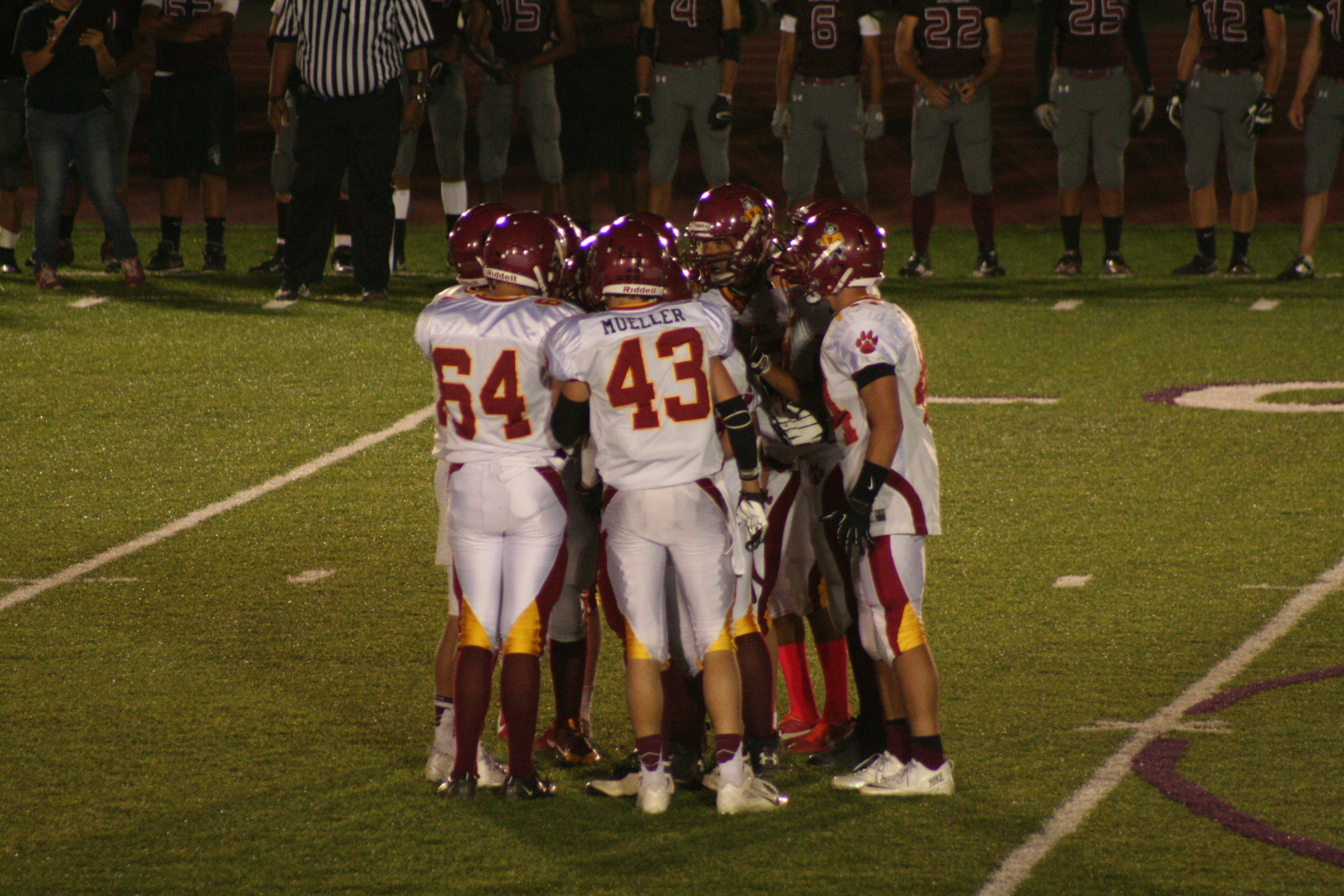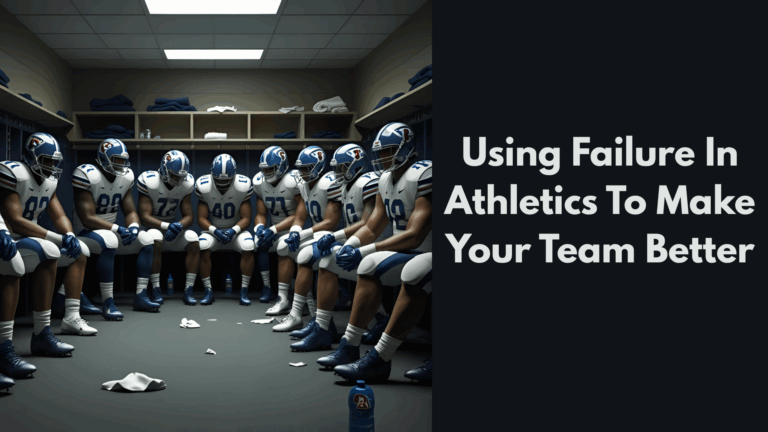
This is the first of a series from Dr. Jared M. Wood, a sports psychologist who I really believe in. I’ve seen him speak at the California Athletic Directors Conference a few years ago, and he did a GREAT job, and really first started getting me to think about sports psychology and its importance in high school athletics!
By Jared M. Wood, Ph.D.
A true team is characterized by leaders and followers sharing their roles, pulling and pushing each other toward a common goal.
In football, and in life, nobody achieves his potential without help from others. Therefore, if you succeed, you need to realize that you have had help from others. The individual focused too much on himself will overlook the help he has gotten from others, eventually become an island unto himself, and stop getting the help he needs from others in order to be his best. Ultimately, he will end up as less of a player, less of a man, than he would be if he allowed others to help him.
While you need help from the team in order to be your individual best, you need to realize that every other player on the team is in the same boat. Each other player on the team needs every other player on the team to help him be his best, and every other player on the team includes YOU.
In other words, every single one of your teammates needs YOU in order to be his best. When viewed from that perspective, it is easy to see why a team is only at its best if individuals are committed to each other and the team as a whole.
In football each position has an assignment on every play. On every rep in practice, on every play in the game, you have an assignment. You are responsible to the assignment in that you must make the play to help the team succeed. You are accountable to the team in that individual success only matters if the team also succeeds. Your role is not to be an individual. It is to perform your individual assignment to the best of your ability so that the team succeeds. Individual success is nice, but it is not the point of team sports.
Furthermore, as noted above, individual success is never achieved without the support of others. Recognize that fact. If you selfishly put yourself and your individual role above the team, the team loses out on you being a great teammate even if your individual stats are incredible. This loss of the teammate role around you may very well lead to a loss on the scoreboard as well.
The essence of being a good teammate is that everyone on the team is both a leader and a follower.
Your actions influence others. This makes you a leader. Your teammates and coaches also influence you. This is inevitable on a team, and at any given moment when you are influenced by someone else, you are a follower.
Therefore, being a great teammate is about leading your team to the best of your ability and also following only the best examples of leadership.
Being a good teammate and helping your team be the best it can be is about more than just doing your individual assignment and taking care of your own business. You must do what is best for the team. You must provide your teammates with what they need from you. Sometimes this will require leading, and sometimes it will require following.
Check back for Part 2 of this series soon!!
Dr. Jared Wood is a sport psychology consultant. He recently completed and published a sport psychology training manual for players and coaches, It’s Only Cold On One Sideline. Visit 1sideline.com and join as a member to become part of a community of coaches and athletes dedicated to peak performance. Along with free material, such as his Winning Time Training Journal and Championship Confidence: 9 Essential Lessons for Creating Championship Confidence, Mastering Your Mindset, & Crushing the Competition, the manual and other resources are available for purchase. He can be contacted at jaredwood@mac.com.


